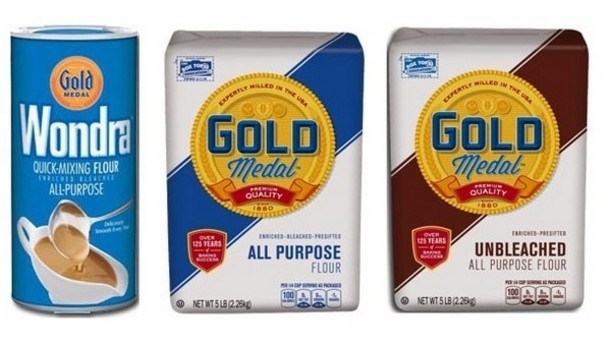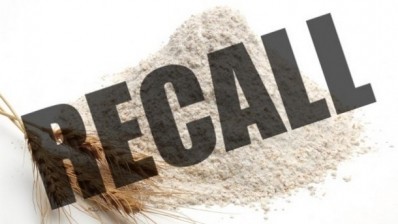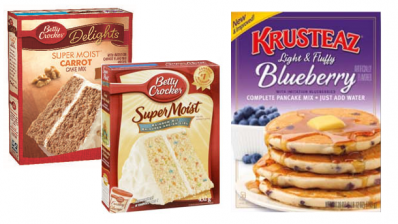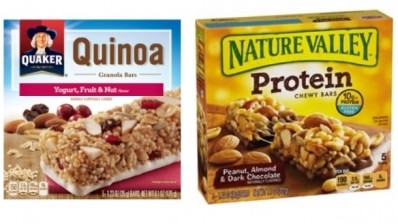General Mills flour recall extended as more consumers fall ill with E.coli

In May, the company recalled 10 million pounds of Gold Medal, Wondra and Signature Kitchens flour produced last fall at a plant in Kansas City, Missouri. The US Centers for Disease Control and Prevention (CDC) said the flour is the ‘likely’ source of the multistate outbreak of E. coli that had, at that time, infected 38 people.
Now, following reports of a further four people falling ill from Shiga toxin-producing Escherichia coli O121 (STEC O121) infections, the company is extending the recall to include flour made earlier last fall. (For a list of products affected by the extension, see end of this article.)
So far, cases have been reported in 21 US states, with the most recent illness starting on June 8. Eleven of the ill people have been hospitalized, although none have developed kidney failure and no deaths have been reported.
It is believed the illnesses are a result of consumers eating raw dough or batter, and the CDC and US Food and Drug Administration have warned the public not to eat any raw products made with flour.
No 'kill steps'
The FDA pointed out that raw dough has not gone through any of the common ‘kill steps’ applied during food preparation or processing such as boiling, baking, roasting, microwaving and frying.
“Flour is derived from a grain that comes directly from the field and typically is not treated to kill bacteria,” says Leslie Smoot, a senior advisor in FDA’s Office of Food Safety and a specialist in the microbiological safety of processed foods.
Bacteria from animal waste could contaminate the grain, which is then harvested and milled into flour, added the FDA.
General Mills said it was continuing to collaborate with health officials to investigate the outbreak.
General Mills flour recall: How FDA investigated outbreak
In a blog post on the US Food and Drug Administration website, deputy commissioner for foods and veterinary medicine Stephen Ostroff and FDA Coordinated Outbreak Response and Evaluation director Kathleen Gensheimer described how the outbreak was investigated.
The issue was investigated by the FDA’s Coordinated Outbreak Response and Evaluation network, a team that looks for ‘signals’ that may point to a pending outbreak.
A string of infections that had begun in December and were caused by Shiga toxin-producing E. coli O121 beginning in December had been discovered by the CDC.
Investigators catch a break
Identifying the source of the outbreak was not easy, says the blog, but investigators caught a break in April when they found that all of the people interviewed in depth had been baking at home, and many had used Gold Medal flour. Some interviewees also mentioned eating raw cookie dough that had been made at home with the flour.
CORE now had what it described as “the daunting task” of proving that specific batches of flour caused the majority of the illnesses.
The team was helped as three people who had become ill still had the original flour packaging: two showed the Gold Medal flour had been packaged at a General Mills facility in Kansas City, Missouri, on consecutive days; while the third was made at that plant within a week of the other two.
Investigators also became aware of illnesses linked to restaurants that gave balls of raw dough for children to play with. The CORE team learned the flour used by the restaurants during the estimated time of the children’s exposure was supplied by the same General Mills production facility.
General Mills contacted
The FDA decided not to wait for laboratory confirmation that there was E. coli in the flour before contacting General Mills. On May 27, FDA and CDC investigators briefed General Mills, and on May 31 the firm voluntarily recalled 10 million pounds of flour produced in the Kansas City plant.
Laboratory tests confirmed the presence of E. coli O121 in a flour sample collected from the home of a patient who had provided one of the General Mills flour labels. On June 10, FDA’s whole genome sequencing analysis of that sample also confirmed the E. coli O121 was closely related to bacteria found in people who had become ill.
“The final piece of the puzzle was put into place, although the investigation continues to ensure that all contaminated product is off the market,” says the blog, which can be read here.









